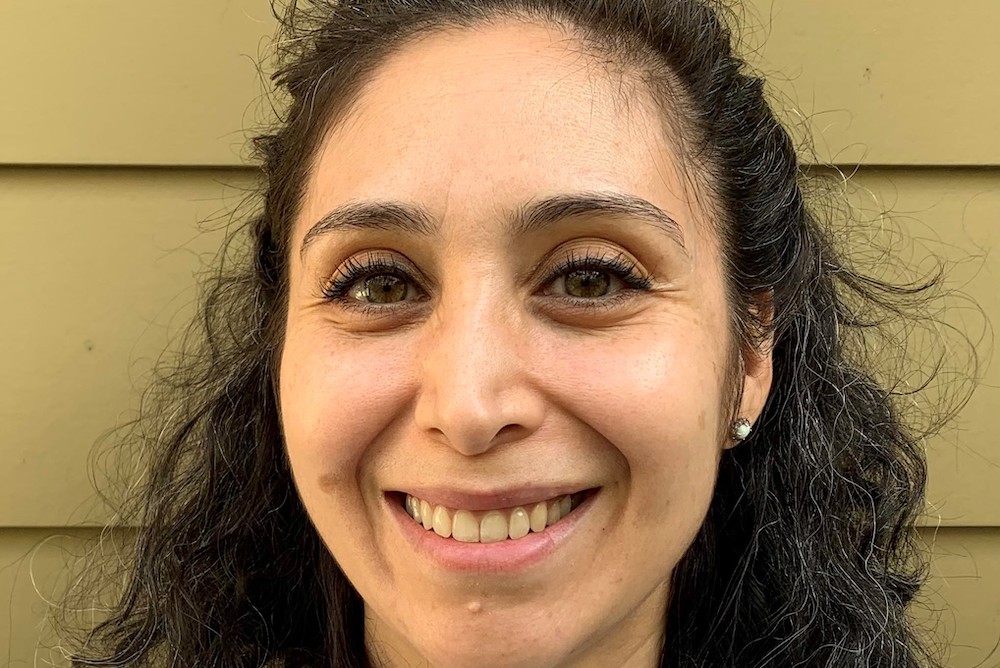
Isabel Cardenas-Navia is the senior director of research at Workcred, an affiliate of the American National Standards Institute whose mission is to strengthen workforce quality by improving the credentialing system. The coauthor of a recent article on learning and employment records, she has a Ph.D. in biomedical engineering. Before participating in the Zócalo/Issues in Science and Technology event “Is It Time to Throw Away Our Resumes?,” she called into the green room to talk about her skills as a number cruncher, coconut flan, and why research projects depend on project management skills.
Are you dressing up for Halloween next week?
I’m still deciding, but if I do, my three daughters are dressing up as ghosts, so I’d have to go along with the theme. They’re all goth-looking ghosts, so I imagine myself in some sort of goth-y ghost costume.
What’s your favorite trick-or-treat candy?
When we were kids, they would still give out things like caramel popcorn balls, and those were probably my favorite. Now everything’s pre-packaged. Maybe Sugar Babies? Anything with chocolate is probably a big winner.
What’s the strangest job you ever had?
I did many research jobs, and so I wouldn’t say it was the strangest, but: counting colonies on cell plates, and doing some work with animal research, looking at how blood vessels grow in tumors. These things are a little bit out of the ordinary—but very typical for folks who have done biomedical research.
Where would we find you on a typical Sunday morning?
Wrestling with my children to make them do something—practice piano or do some chores, something like that.
Do you have any hidden talents?
I have two hidden talents. One is that I make a mean coconut flan. And my other is I am very fast on my calculator. I did a calculator competition in high school, where you had to punch numbers quite quickly on your calculator, and I became quite good at it.
How often do you use a calculator these days?
Very rarely. Everything’s on Excel or other types of software now.
What’s hanging on your living room walls?
They’re bare. We moved a couple weeks before everything shut down into a new house, and my husband and I have not yet agreed which artwork from our old house transitions to the new house.
Are you a morning person or a night owl?
Morning person. I like to get up early, walk the dog, and if I get up early enough, I get some exercise in—and then again, wrestle with my children to get them out the door. I can have some peace and quiet and a nice cup of coffee when they’re at school.
How do you use your science and engineering background in your work at Workcred?
The problem-solving approach and the ability to do project management. In terms of the problem solving, it’s thinking about which piece of this complex puzzle of workforce and education are we going to focus on, defining a problem in a way that you can get data to address the problem, and of course interpreting the data, coming up with results, and applying them. The project management piece is very similar. We don’t think of a research project as something that’s necessarily project management, but it is. You start with a blank piece of paper or some research, and you develop it out, you have a budget, you have a project timeline, you have milestones. And you are generally working with a team, counting on other people for input and feedback and relying on them for results.
What’s the best advice you’ve ever been given?
That the person you marry will be one of the biggest decisions of your life—in a positive way! It influences your career choices, your personal life choices, and it’s really been great to have a partner who supports my career development as well as having aligned personal goals. I got that advice when I was 21 from a faculty member at Berkeley, and at the time I thought she was completely insane—I was looking for career advice. But it ended up being very good.



